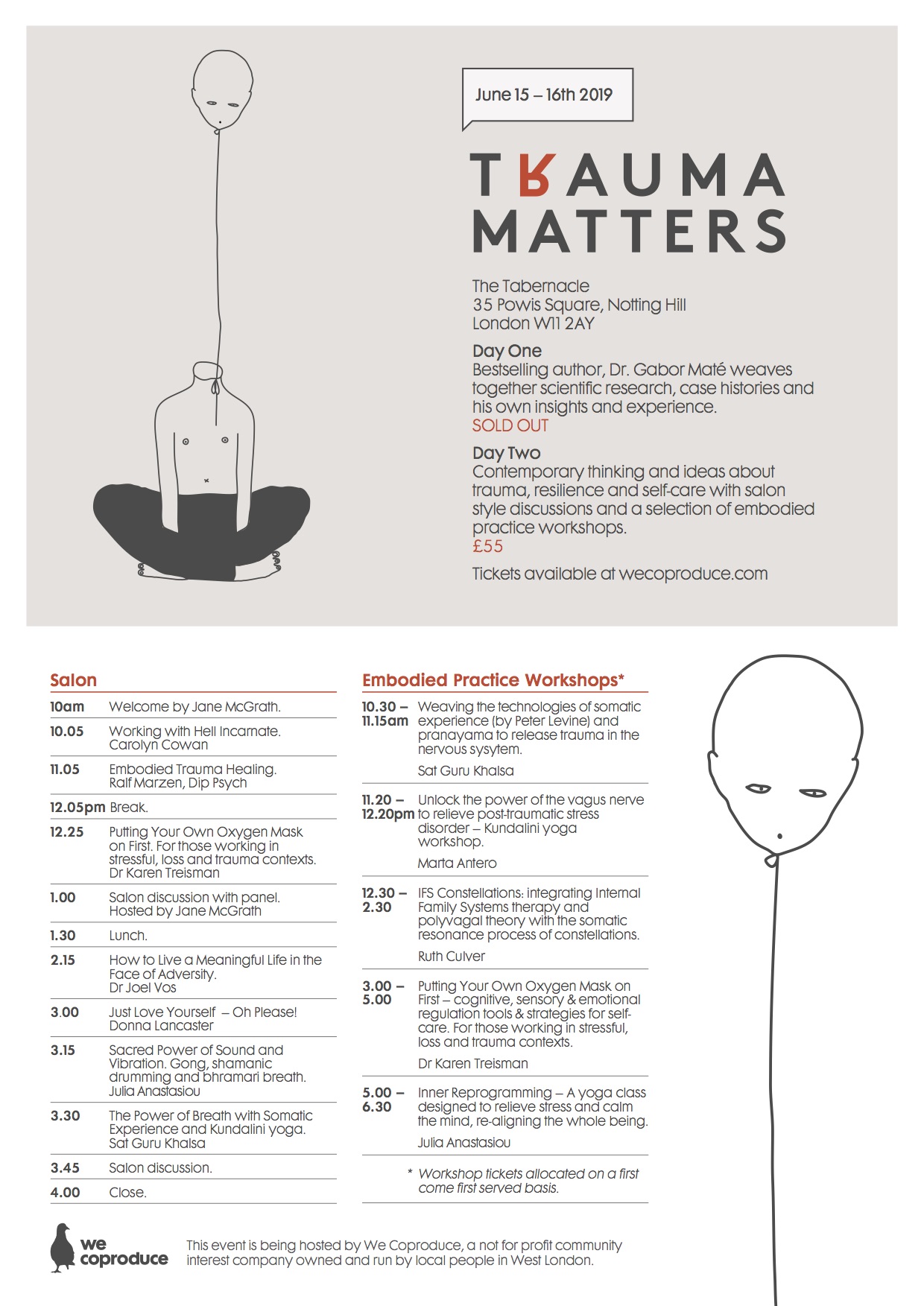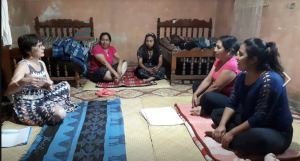This interesting blog post about sexual identity caught my eye:
https://qz.com/1230638/omnisexual-gynosexual-demisexual-whats-behind-the-surge-in-sexual-identities/
So I thought it would be interesting also to share this post on the issue of Sexual Identity and Sexual Trauma written byProf Franz Ruppert (creator of the IoPT Identity Constellations theory and method):
To call one’s sexuality “hetero”, “homo”, “gay”, “lesbian”, “trans”, “queer” etc. does not say anything about the quality, how I act my sexuality out – alone or with a partner.
Also naming it “normal”or “natural” is more an attempt to justify it for public opinion than to look at it in more depth.
What matters in my thinking is the question:
– whether we practice our sexuality from our healthy identity or
– whether our sexuality is traumatized or
– whether we are traumatizing others with our sexuality and
– whether our sexual trauma forces us to develop trauma-surviving strategies and attitudes of being a victim or a perpetrator.
Healthy sexuality is possible provided we have our healthy ‘I’ available for it, act out of our own free will, stay in a good contact with our perceptions and emotions, have realistic thoughts, have a good sense of our body, and do something that is joyful for us and our partner(s).
Being sexually traumatized, very often because of our trauma biography, means being overwhelmed by emotions like anxiety, disgust, pain, shame or guilt. Sexual trauma means our body is made into an object by another person, we are physically and psychologically hurt and we cannot stop it and defend ourselves.
Trauma surviving strategies from the victim’s side:
– turning the body into a collapsed or frozen state,
– making oneself emotionally numb,
– attempting to leave the body mentally,
– identifying with the perceptions and needs of the perpetrator,
– feeling disgust, shame and guilt,
– blaming oneself and feeling worthless,
– denying that this happens to oneself,
– suppressing memories about what happened.
From the perpetrator’s side we know surviving attitudes such as:
– “It is your duty and my right to have sex.”
– “It is a pleasure for you and not harmful.”
– “I love this child and the child loves me.”
– “You offered yourself and seduced me.”
– “Even if you say no, deep down you actually mean yes.”
– “I have paid you money for it.”
Sexuality acted out as a trauma surviving strategy:
– often involves alcohol and drugs,
– is meant as a compensation for loneliness,
– is based on illusions of love (“The perpetrator is the only person that loves me and cares for me.”),
– beliefs in myths about sexuality (e.g. “virginity”),
– provides only a short time relief,
– needs to be repeated obsessively,
– does not care if the body is wounded or infected by viruses, bacteria or fungi,
– does not care, if the sexual act leads to a unwanted pregnancy.
Therefore, if we are really interested in the quality of our sexuality, we can explore it with the Intention Method and we may find out how to live our sexuality consciously in a healthy way.
As psychotrauma is so wide spread in all societies, so the trauma of sexuality is also common. A consequence of sexual trauma is to repeat it again and again without realizing it. We may feel good even with the sexual retraumatizations because we do not know what it is to live from a healthy sexuality. Prostitution is seen as normal in a traumatized society. In such societies, it is not easy to find partners who deal with their sexuality in a healthy manner as well.
In traumatized societies sexuality is used as a weapon for competition, to devalue others and to make oneself be seen as the only one that is “good” and even “perfect”. Or the strategy is to hide within a traumatized collective that seems “normal”, where others are not and can be blamed and discriminated. For political purposes, persons that do not fit to the “normal” sexual standard in many countries are offered as “evil” and as scapegoats to project whatever fantasies you want on them, to stir hatred and justify violence.
I hope we all who like to work with IoPT, do not put extra fuel on the wide-spread fires of perpetrator-victim dynamics in our society that are acted out consciously and unconsciously in this field.
Franz Ruppert, 28.3.2018







